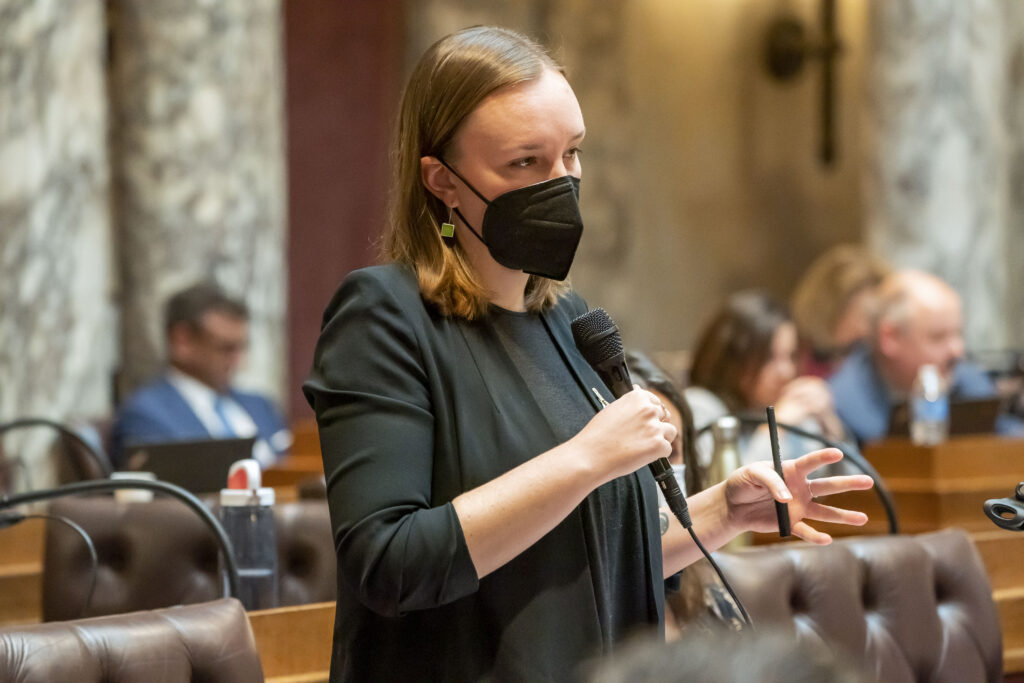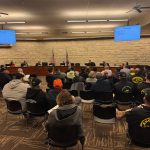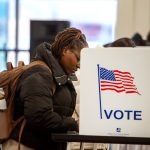Legislative Democrats Review Losses, Strategy
Party lost 4 more seats, hopes for compromise on some issues with Republicans.
Legislative Democrats staved off a Republican supermajority in the Wisconsin Assembly last week that would have allowed the GOP to override Gov. Tony Evers’ vetoes. The results — while viewed as a victory — still leave Democratic state lawmakers in a tough spot.
Democrats lost one seat in the state Senate and three seats in the state Assembly, giving Republicans the ability to push policy with larger majorities and leaving Democrats to try to make change with fewer voices. This, along with the departure of longtime lawmakers, puts Democrats in a transitory moment as they contemplate their strategy for affecting policy.
“With Governor Evers, Attorney General [Josh] Kaul being elected to second terms, it’s clear that the people of Wisconsin are asking for that pragmatic, thoughtful leadership,” Agard said. “I am hopeful that my colleagues on the other side of the aisle realize that the majority of the people have asked for us to be able to work together. They’re leaning into the idea of split government.”
Agard, if elected, would replace current Democratic Minority Leader Janet Bewley (D – Mason), who has served in the leadership position since 2017. Bewley announced she would not seek reelection to the Senate earlier this year, and her seat in the 25th District was won by Republican Romaine Quinn.
Agard said her priorities would include doing strong, creative outreach to constituents to build a network across the state and finding Senate Republicans that are willing to work with Democrats.
With two years in the Senate under her belt and eight in the Assembly, Agard, who is the current minority caucus vice-chair, said she’s hopeful she can build on previous relationships with lawmakers.
Agard added she believes Senate Democrats will be able to work across the aisle to start addressing issues that touch people across the state including strong schools, improving access to clean and safe water, comprehensive health care and legalizing cannabis.
While Agard understands it will be a challenge, she said she believes communication can improve with work.
“The communication and trust and systems in the Capitol building are broken,” Agard said. “But I continue to believe that when something isn’t working, but you sit down and you come together and you try to overcome those hurdles and heal those divides and figure out how it is that you can fix things so that we can move forward as a state.
Majority Leader Devin LeMahieu, who was reelected by the Senate Republican caucus last week, has signaled that he plans to continue blocking Democratic policies in Wisconsin. Specifically, he said Republicans will “continue to work as an effective check on Evers’ liberal agenda and his attempts to take Wisconsin backwards.”
Assembly Minority Leader Greta Neubauer, who will seek another term in the position, attributes Democratic losses last week in the Legislature to Republican gerrymandering.
“What we saw was Republicans’ further gerrymander of the state of Wisconsin resulted in them picking up a couple of seats,” Neubauer said. “[Republicans] picked up the 13th seat in the Milwaukee suburbs, despite the fact that that flipped for Democrats last cycle. They were able to defeat incumbent Don Vruwink because they drew him into a significantly Republican district. We fully believe these candidates ran great campaigns and the primary reason that they lost this election was because of the gerrymander.”
Neubauer said she hopes the election results will send a signal to Republicans.
“Republican legislators will have to take a good hard look at those election results particularly for governor and recognize that their constituents want more from them and the Capitol, want them to actually engage and discuss solutions to the challenges that they’re facing,” Neubauer said.
Nuebauer said she hopes this will lead to more discussion and advancement of Democratic policy proposals over the coming session, something that hasn’t happened much in recent years. She said there are many policies Democrats hope to work on in the coming session, including repealing the 1849 abortion ban, passing gun safety legislation and expanding access to child care.
Democrats’ ability to have proposed policies discussed has slowed significantly over the last decade. Since Republicans took control of the Legislature in 2011, about 2% of Democratic bills have received public hearings, while over 70% of Republican proposed bills have received hearings.
There is the potential for the Legislature to diverge from this status quo, however it’s uncertain whether that will come to fruition.
Vos signaled that he might be open to working with Democrats on a couple of policies, but had no details about a path forward. He said he’d be open to increasing public school funding with the stipulation that school choice programs are also expanded.
“If [Evers] wants more money for schools, we have to have some reform along the way,” Vos said to reporters following the meeting. “We’re not just going to write a blank check because we’ve now seen what it looks like over the past couple years. So he wants more money, we want some reforms. Seems like there’s a potential for a deal.”
Vos also said he supports including exceptions for rape and incest in Wisconsin’s abortion law, however, the caucus hadn’t discussed policy details yet. He said Republicans will meet again in coming weeks to see the direction the caucus will decide to take on issues such as abortion.
Neubauer said Democrats have always been willing to engage with Republicans on policy matters — pointing to past Republican-led bills signed by Evers — but the future of discussion is up to Republicans.
“We will continue to show up to have those conversations whenever Republicans are willing to engage with us on these critical issues,” Neubauer said.
Democrats will caucus this week, with Senators meeting Tuesday and Assembly representatives meeting Thursday, to elect their leadership for the biennium.
Legislative Democrats consider paths forward following election losses was originally published by the Wisconsin Examiner.





















